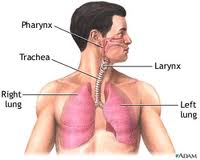 I’ve noticed that sometimes the question of homeschooling while chronically ill is lumped in with pregnancy as if they are the same or very similar. They aren’t. Even if (like me) you have the joy of nine whole months of throwing up left right and centre with some “mummy brain” thrown in – pregnancy is different in one very vital way. No one is pregnant for years on end, and many of the more yukky sides of pregnancy are both treatable and manageable. It is also silly to try and lump pregnancy as an “illness”. It is’t, even if the culture of medical elitism tries to tell us it is.
I’ve noticed that sometimes the question of homeschooling while chronically ill is lumped in with pregnancy as if they are the same or very similar. They aren’t. Even if (like me) you have the joy of nine whole months of throwing up left right and centre with some “mummy brain” thrown in – pregnancy is different in one very vital way. No one is pregnant for years on end, and many of the more yukky sides of pregnancy are both treatable and manageable. It is also silly to try and lump pregnancy as an “illness”. It is’t, even if the culture of medical elitism tries to tell us it is.
Chronic illness can be neither treatable nor, at times, manageable – and is way more unpredictable. When you plan home ed through a pregnancy you know there’s a point in which you can pick up again. When you plan through chronic illness it’s a whole different set of challenges.
So, what are the things that you can do if the Boss has called you to homeschool and He’s called you to carry the chronic-cross too? You can tell Him what you think of His plan 🙂 – and then you have to get on with it.
First things first. You see that big pile of guilt you’ve got building up over there. Deal with it. Sort out the fake from the real. Bin the fake and get yourself to Confession for the real stuff. If you are too sick for Confession (and there’s nothing mortal lurking about) you can pray a lot. He’s merciful like that. (even when you’ve told Him how you really feel).
Once that’s done (and yes I know it keeps rebuilding, but keep kicking it down) then you can move on to priorities. Prayer first. You’ll get nothing done without help from Upstairs. He has a lot of friends and relations who can be relied on to keep praying for you too. (Where would I be without St. Bridget of Sweden?) One of the wonderful things about the saints in heaven is that they can still pray, even when you, in fog, confusion and befuddlement can’t. Also we are fortunate that God, who is all wise gets a prayer of “Dear Lord, urdle, flurble mup.”
This little conversation is a good illustration of chronics homeshooling.
An article here asks a mum considering home education when she has chronic illness to think of a few things. It essentially says, pray, have a good husband and get some good fellow home ed mums on board to help out. It’s a good plan.
Yesterday a fellow home ed family came over. I’m still pretty crashed from the mini-stroke last week (TIA) but the mum of this family is completely relaxed around me no matter how wrecked I seem. She makes no fuss and simply does her bit around me. She takes the mic and allows me the space to do stuff when I think I can give it a go. Friendships like this are rare and to be treasured (so thanks Jo!)
Then you must trust. While riding the trust you can plan for what curriculum you need to buy because you aren’t well enough to make it, teach it or organise it. All I can say on this is God Bless America! The UK has a shorter history of home ed (although it’s been around over 25 years) and has almost nothing of quality home ed resources sadly, (I think the awful national curriculum bares a lot of the blame – thanks Maggie Thatcher!). So, look at the American stuff. There’s a lot out there and yes it’s expensive (compared to making your own) and yes, most of it needs shipping and therefore costs are even higher and add the recent sneaky tax on educational materials in the UK and you’ll be in debt – but God never said debt was a sin; whereas not providing the best education you can for your children can be. You do need to plan your debt so you can pay it off, but I haven’t found a way of importing stuff without needing time to pay it off. It’s still a good option done with prayer, discernment and care.
Find ways to make resources do more than one job. Find ways to make cheaper resources when you’re well enough. One of the things with most chronic illnesses and even acute ones like cancer, is there are good moments when you are more capable. Use them as best you can. I use those times to make and plan stuff that when I’m too sick I just can’t do.
But wouldn’t it be easier to sent them to school?
Not necessarily. First of all you would need to have a school that meets your children’s needs so you don’t have to undo the damage and do the home ed after school because not much ed has taken place in school. (Been there, done that; don’t fancy a repeat) Then you’d need the energy to take and collect the children every day and cope with whatever fall-out the day has in store for you. That was hard enough when I was well!
Giving your children the best education you can give them is worth a lot and not having to undo stuff from school is a blessing.
Finally, all you can do is plan, pray, trust and take it one day at a time. I know more than one chronically ill mum who home educates children with some serious educational needs such as severe autism. Let them be an inspiration- not a moment of “Yikes! Why can’t I be that good?”












































































